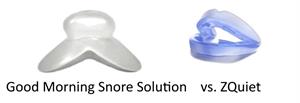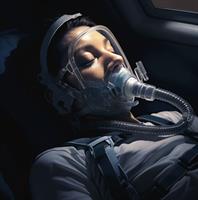Have you ever wondered why you or your partner snore more loudly after a night of drinking? Snoring is a common issue affecting many people. For some, it’s a mild annoyance, while for others, it can be a sign of a more severe condition like sleep apnea.
One of the factors that can contribute to snoring is alcohol consumption. But how exactly does alcohol affect our sleep and lead to snoring?
This blog post will explore the connection between alcohol and snoring, and provide helpful tips for reducing snoring after consuming alcohol.
Key Takeaways
-
Alcohol consumption can lead to an increase in snoring due to its effect on the throat muscles, resulting in reduced sleep quality.
-
Making lifestyle changes and utilizing snoring reduction techniques such as using a humidifier or mouthpiece can help reduce the effects of alcohol on snoring.
-
It is important to seek professional help for persistent or disruptive sleep apnea and snoring, with treatment options including CPAP therapy, surgery, lifestyle modifications and devices.
Alcohol's Role in Snoring
Alcohol and snoring have a close relationship. Drinking alcohol can either cause snoring or worsen existing snoring problems, thereby decreasing sleep quality through several processes.
Alcohol has been known to cause relaxation of the muscles in the mouth and throat, which can result in the production of noise as a person breathes in and out during sleep.
But what’s the mechanism behind alcohol-induced snoring, and what effects does it have on our overall sleep quality?
How Alcohol Causes Snoring
The primary cause of alcohol-induced snoring is the relaxation of throat muscles, including the epiglottis, potentially leading to airway blockage and subsequent snoring. When we drink alcohol, our throat muscles relax more than they would during normal sleep, making it more difficult for air to pass through and increasing the likelihood of snoring.
Besides its direct impact on throat muscles, alcohol can also interfere with our normal sleep cycle, resulting in subpar sleep quality and amplified snoring. This disruption in the sleep cycle can lead to a higher likelihood of experiencing disturbed sleep, making the problem of snoring even worse. In fact, the alcohol make can be a significant factor in worsening snoring issues.
Alcohol and Sleep Quality
Drinking alcohol, especially in excess, can have a significant negative impact on sleep quality. Research suggests that alcohol affects the brain’s normal electrical activity during sleep, resulting in alterations to the sleep cycle and potential sleep issues. Some effects of alcohol on sleep include:
-
Decreased REM sleep
-
Increased wakefulness during the night
-
Fragmented sleep patterns
-
Increased snoring and sleep apnea symptoms
The connection between alcohol and sleep quality is evident, as those who consume alcohol in the form of more than two alcoholic drinks for men or one drink for women have been observed to result in a 39% decrease in sleep quality.
Even minimal amounts of alcohol consumption can have a negative effect on sleep quality. A study revealed that a decrease of 9% in sleep quality occurred when men consume fewer than two drinks and women consume fewer than one drink. This highlights the importance of being mindful of alcohol consumption, particularly before bedtime, to ensure quality sleep.
The Impact of Alcohol Consumption on Sleep Apnea
Sleep apnea is a sleep disorder characterized by recurrent pauses in breathing during sleep, which can lead to loud snoring and excessive daytime sleepiness. Alcohol consumption can have detrimental effects on individuals with sleep apnea, making it more difficult for them to breathe and worsening their symptoms. This is because alcohol can cause the muscles in the upper airway to relax, resulting in airway obstructions and sleep apnea.
We will further examine the various types of sleep apnea and the ways in which alcohol can intensify their symptoms.
Alcohol and Obstructive Sleep Apnea
Obstructive sleep apnea (OSA) is a type of sleep apnea that is exacerbated by alcohol consumption due to airway obstructions and nasal congestion.
When alcohol is consumed, it can cause the muscles in the throat to relax, leading to a blocked airway and snoring. This can make a person with OSA snore louder and experience more severe symptoms overall.
Individuals with alcohol use disorder have an increased risk of developing OSA, particularly if they are already snorers, which can affect their quality of sleep. Furthermore, frequent alcohol consumption has been associated with lower rates of compliance with continuous positive airway pressure (CPAP) treatment for sleep apnea.
Alcohol and Central Sleep Apnea
Central sleep apnea is a sleep disorder characterized by periodic breathing interruptions during sleep, and it is also exacerbated by alcohol consumption.
Alcohol has a depressant effect on breathing, which can worsen central sleep apnea by decreasing activity in the brain and central nervous system. This can lead to a glitch in the automatic process of inhaling and exhaling, causing disrupted breathing patterns during sleep.
Alcohol’s impact on central sleep apnea highlights the importance of being cautious about alcohol consumption, particularly for individuals who have been diagnosed with this sleep disorder or are at risk of developing it.
Alcohol and Other Sleep-Related Breathing Disorders
Alcohol can also worsen other sleep-related breathing disorders, such as hypoventilation. Studies have indicated that alcohol intake close to bedtime can exacerbate sleep-disordered breathing and worsen hypoventilation. Furthermore, alcohol can increase the severity of symptoms and breathing problems in individuals with obesity hypoventilation syndrome.
This highlights the importance of being mindful of alcohol consumption, especially before bedtime, for individuals with sleep-related breathing disorders. Reducing alcohol intake or abstaining from alcohol altogether can help alleviate the severity of these conditions and improve overall sleep quality.
Tips for Reducing Snoring After Consuming Alcohol
While alcohol consumption can contribute to snoring and sleep apnea, there are steps that can be taken to help mitigate these issues. Implementing lifestyle changes and using snoring solutions can help reduce snoring after consuming alcohol, improving sleep quality and overall well-being.
We will investigate several strategies that can help reduce snoring and sleep apnea symptoms following alcohol consumption.
Lifestyle Changes and Snoring Reduction Techniques
If you’re looking to reduce snoring after drinking alcohol, consider avoiding alcohol before going to bed, sleeping on your side, and steering clear of sleeping on your back.
Other lifestyle changes that can be beneficial in reducing snoring include keeping hydrated and maintaining a healthy weight.
In addition to these lifestyle modifications, practicing snoring reduction techniques such as sleeping on one’s side, abstaining from sleeping pills, and utilizing a humidifier may also be helpful in abating snoring and preventing it from getting worse.
Snoring Solutions and Devices
There are various snoring solutions and devices available to help minimize snoring caused by alcohol consumption, such as:
-
Snoring mouthpieces
-
Nasal strips
-
Chin straps
-
Positional therapy devices
A snoring mouthpiece, for example, can help reduce the amount of snoring that occurs after drinking alcohol by maintaining the lower jaw in a slightly advanced position, which facilitates keeping the airway open and consequently reduces snoring.
Other devices, such as nasal strips or chin straps, can also be effective in reducing snoring after alcohol consumption. Consultation with a sleep medicine specialist can help determine the most suitable snoring solution for each individual based on their specific needs and preferences.
The Importance of Seeking Professional Help
If you suspect that you or your partner may have sleep apnea or if snoring is affecting your daily life, it is crucial to seek professional help. Addressing sleep apnea and snoring issues early on can prevent further health complications and improve overall quality of life.
We will examine the appropriate time to consult a sleep specialist and the treatment options available for sleep apnea and snoring.
When to Consult a Sleep Specialist
If you suspect sleep apnea or if your snoring is disrupting your daily life, consulting a sleep specialist is of utmost importance. Common indications of sleep apnea include:
-
Loud snoring
-
Interrupted breathing
-
Excessive daytime sleepiness
-
Morning headaches
If your snoring persists for more than three months and is significantly impacting your quality of sleep, seeking professional help is recommended, especially if it’s getting snoring worse.
If you are undergoing treatment for sleep apnea, such as CPAP therapy, and it is not providing the desired results, it is advised to notify your healthcare provider. They can help adjust your treatment plan accordingly to ensure better results and improved sleep quality.
Treatment Options for Sleep Apnea and Snoring
A variety of treatment options exist for managing sleep apnea and snoring, ranging from continuous positive airway pressure (CPAP) therapy to surgery. CPAP therapy involves wearing a mask connected to a machine that pumps air into the lungs while sleeping, helping to keep the airways open.
Surgery for sleep apnea and snoring may involve removing excess tissue from the throat or palate, or implanting a device to maintain an open airway. Additional treatments for sleep apnea and snoring may include lifestyle modifications, such as abstaining from alcohol and achieving a healthy weight, as well as the use of devices such as nasal strips or chin straps.
Summary
In summary, alcohol consumption can contribute to snoring and worsen sleep apnea by relaxing throat muscles and disrupting sleep quality. However, by implementing lifestyle changes and using snoring solutions, it is possible to reduce snoring and improve sleep quality after consuming alcohol.
It is essential to seek professional help if you suspect sleep apnea or if snoring is affecting your daily life, as early intervention can prevent further health complications and improve overall well-being.
Take control of your sleep and health by being mindful of alcohol consumption, adopting healthier habits, and considering professional help if needed. A good night’s sleep is within reach, and making these changes can lead to a better quality of life for you and your loved ones.
Frequently Asked Questions
Does drinking alcohol make snoring worse?
Alcohol consumption can relax the throat muscles, leading to upper airway collapse and vibrating of soft tissue, causing snoring. Evidence suggests that it worsens snoring in those who already tend to snore, which can cause problems achieving proper REM sleep.
Will quitting alcohol stop snoring?
Quitting alcohol can help reduce snoring, though it is unlikely to stop it completely. Other solutions, such as sleeping on the side and wearing nasal strips, may also be beneficial in reducing snoring. Additionally, lifestyle changes like weight loss, mouth exercises, quitting smoking, and avoiding alcohol can be helpful.
What is the connection between alcohol and snoring?
Alcohol consumption can lead to relaxation of the throat muscles, which can lead to snoring as a result of airway blockage.
Can alcohol worsen sleep apnea?
Yes, alcohol can worsen sleep apnea by causing airway obstructions, nasal congestion, and reduced brain activity.
Are there any devices available to help minimize snoring caused by alcohol consumption?
Yes, devices such as snoring mouthpieces, nasal strips, and chin straps can help minimize snoring caused by alcohol consumption.
References
- Alcohol use and poor sleep quality: a longitudinal twin study across 36 years. https://www.ncbi.nlm.nih.gov/pmc/articles/PMC10104364/
- Sleep, Sleepiness, and Alcohol Use. https://www.ncbi.nlm.nih.gov/pmc/articles/PMC6707127/
- Acute Effect of Alcohol Intake on Cardiovascular Autonomic Regulation During the First Hours of Sleep in a Large Real-World Sample of Finnish Employees: Observational Study. https://pubmed.ncbi.nlm.nih.gov/29549064/
- Alcohol and the risk of sleep apnoea: a systematic review and meta-analysis. https://pubmed.ncbi.nlm.nih.gov/29549064/




